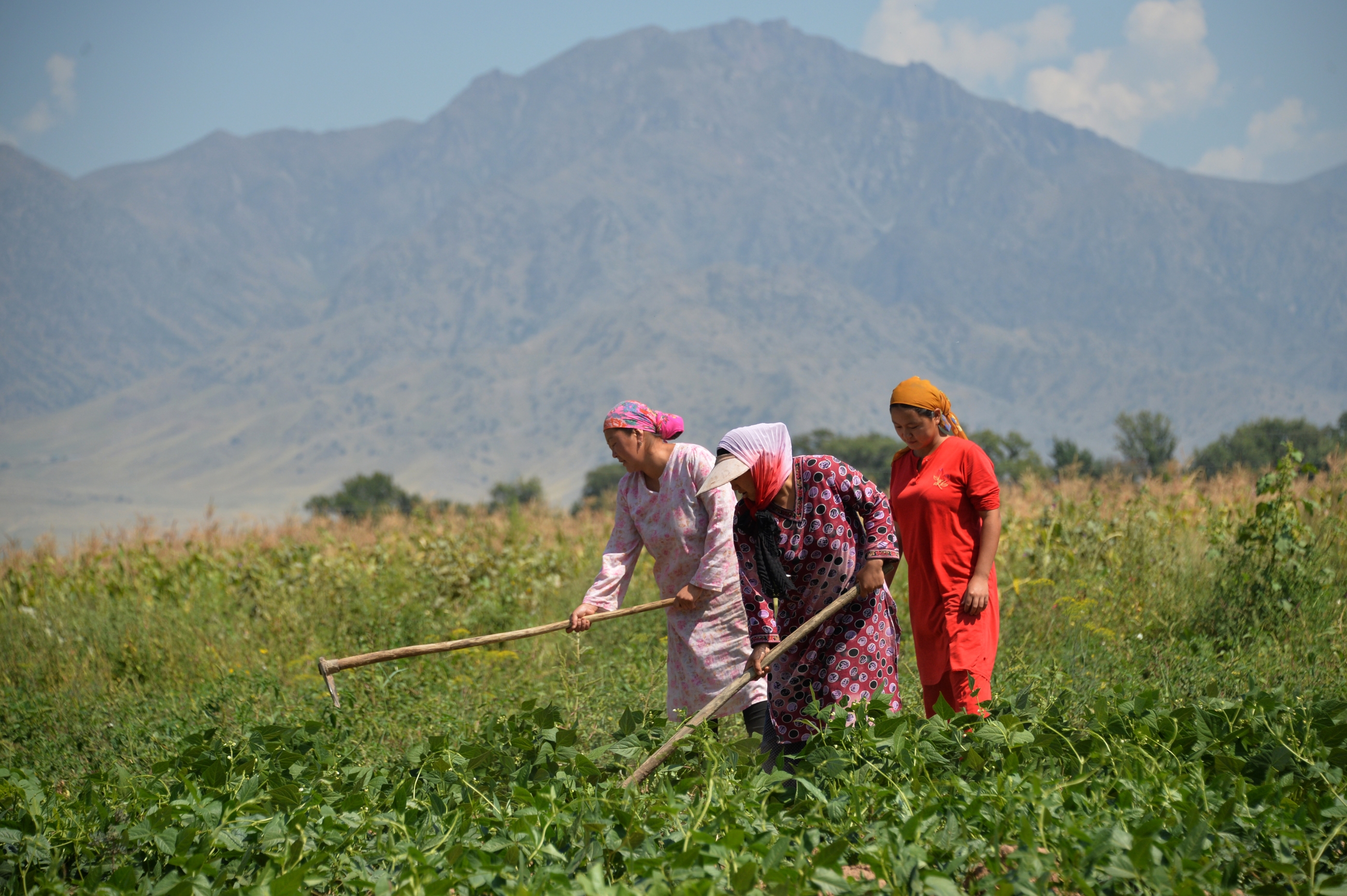
This STDF project aimed to increase the competitiveness and sustainability of the Kyrgyz fruit and vegetable industry by strengthening compliance with food safety standards. The project aimed to enhance the capacity of farmers, food processors and national authorities to meet the sanitary and phytosanitary (SPS) requirements of the Eurasian Economic Union (EAEU), with the broader aim to enhance access to high-value regional markets and improve the livelihoods of about 323,000 smallholder farmers.
Kyrgyzstan joined the Eurasian Economic Union (EAEU) in 2015, with a three-year transition period to align with the Union’s SPS regulatory framework. While the move was expected to boost agri-food exports, the country instead faced a decline in exports and an increase in imports from other EAEU members. Despite the transition period, Kyrgyz food business operators were required to demonstrate compliance with EAEU food safety regulations to access these markets.
At the same time, growing consumer demand for safe, high-quality food within Kyrgyzstan, especially from supermarkets, created significant pressure to align with EAEU measures. However, the country’s SPS system remained reliant on outdated GOST standards focused on end-product certification, lacking modern risk-based inspection and auditing approaches.
Capacity constraints among national experts, government control agencies and food business operators further hindered progress. There was limited familiarity with good agricultural practices (GAP), hazard analysis and critical control points (HACCP), and risk assessment methodologies.
The project set out to play a critical role in upgrading food safety knowledge and systems across Kyrgyzstan. It supported compliance with international and EAEU standards, helped secure continued market access for Kyrgyz exports and provided evidence of progress towards regulatory alignment, a key condition for extending the EAEU transition period.
1. Strengthened capacity for food safety in the fruit and vegetable sector
The project enhanced food safety knowledge and practices across Kyrgyzstan’s fruit and vegetable industry, supporting alignment with EAEU and Codex standards. Two national reports assessed food safety risks, infrastructure gaps and legal challenges, providing the basis for targeted interventions.
A new HACCP guideline tailored to fruit and vegetable processors was developed and will serve as a future trainers’ manual for national use.
2. Enhanced national training systems and advisory services
A standardized national training plan was developed and implemented through collaboration with the Kyrgyz Association of Fruit and Vegetable Enterprises (AFVE), TES Centre, and technical universities.
45 national food safety experts received training from FAO, with 16 master and assistant trainers selected to deliver the programme. Between July and November 2023, these trainers reached 1,560 farmers (704 women, 856 men) through 75 GAP training sessions and trained 86 processor staff across 37 companies on HACCP.
Knowledge gains were significant, farmers’ scores rose from 21.8% to 78.8% post-training, and 87% of processor staff scored above 80% in post-training exams. Materials were made available in Russian and Kyrgyz and are now being considered for integration into university curricula.
3. Improved capacity of competent authorities for inspections and compliance
The project supported the MoH, MoE, and MoA to develop national guidance for risk-based inspection of fruit and vegetable processors aligned with HACCP and EAEU regulations. Additionally, two inspection checklists and a summary of HACCP improvement measures were submitted for government consideration. To build enforcement capacity, 49 food control officials (37 women, 12 men) were trained in two rounds on HACCP, GHP, GAP, and inspection techniques based on Codex and EAEU frameworks.
1. Map and formalize the national processor database
A comprehensive mapping of fruit and vegetable processors is needed to identify gaps in existing official records. Developing a centralized, up-to-date database that is integrated into national agricultural information systems and will support more effective regulation, training delivery, and market access initiatives.
2. Raise awareness on food safety and certification
Targeted information campaigns should promote awareness among farmers and consumers on the importance of food safety and the role of certifications such as GAP and HACCP. Public concern over food safety can be a powerful driver of adoption. Future efforts should include targeted outreach activities, informing audiences about importance of food safety and the role of certification in verifying compliance.
3. Finalize and operationalize the national food safety law
Building on the project's support to draft the new Law on Food Safety, continued engagement is needed to finalize, adopt, and implement the legislation. This includes developing associated by-laws and operational guidelines. A strong legal framework is key to institutionalizing food safety, standardizing inspections, and supporting enforcement.
4. Strengthen capacity of food safety inspectors at regional level
To ensure effective implementation of new food safety regulations, training for inspectors should be expanded, particularly in underserved regions. Inspectors should be equipped not only to enforce compliance, but also to offer technical guidance to food businesses. Institutional support and refresher training will help professionalize inspection services and build trust with stakeholders.
5. Enhance regulatory oversight of pesticide and agrochemical use
Government agencies should review and update regulations on the import, circulation and use of pesticides and agrochemicals. Aligning national legislation with international standards will improve safety across the value chain and reduce non-compliance risks in regional trade.
6. Build farmer capacity on SPS measures and regional market access
Farmers need practical training on SPS requirements, especially those under the EAEU framework. Additional support should focus on reducing post-harvest losses and improving product quality through better processing, packaging, labelling, storage and transportation practices.
7. Expand access to advisory services and technical expertise
Expanding advisory and extension services is essential for sustainable compliance with food safety systems such as HACCP, ISO 22000 and FSSC 22000. Investments in strengthening advisory infrastructure and knowledge-sharing platforms will help processors strengthen internal systems and reduce reliance on external support over time.